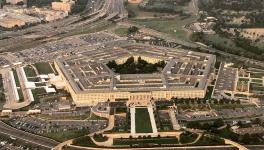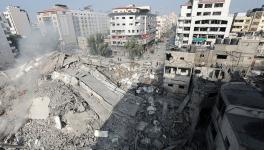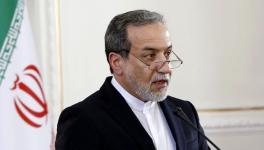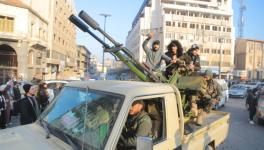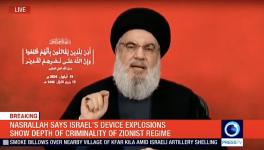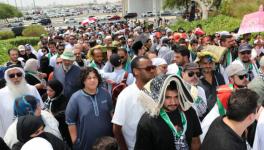Ebb and Flow of Iran’s Influence in Iraq
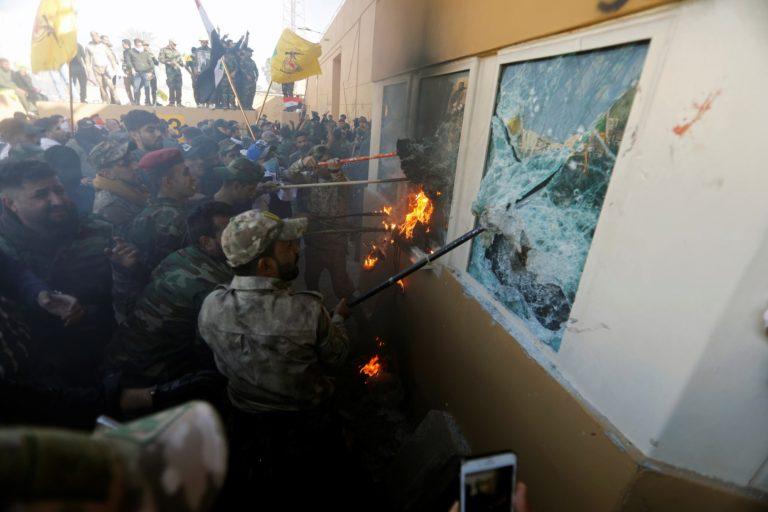
Getting caught between a rock and a hard place is an unenviable situation for a politician. A tragic case in modern times was of Hafizullah Amin, the Cold War era Afghan communist politician who tried to reduce his country’s dependence on the former Soviet Union.The predicament of the present Iraqi Prime Minister Mustafa al-Kadhimi has some similarities. Kadhimi’s political dexterity lies in his ability to find his limits and his prudence from going too far.
Kadhimi has strong affiliations with the US and British intelligence dating back to his years in exile, which continued to be nurtured during his 4-year stint as spy chief in Baghdad, which ended in May when the pro-US Iraqi president Barham Salih, a Kurdish politician, nominated him as prime minister.
Kadhimi continues to receive political, security, intelligence, and logistical support from Washington. Kadhimi also enjoys personal rapport with the Saudi Crown Prince Mohammed bin Salman.
The strong American backing did help Kadhimi to secure the job of prime minister in May, but essentially, he emerged as a compromise candidate of warring Iraqi political blocs who settled for him as interim arrangement until parliamentary elections take place in coming months.
Through last year, Washington shrewdly fuelled chaotic street protests in Iraq by exploiting the people’s disenchantment with the corruption and venalities of the established political blocs and widespread social and economic discontent. This put the Shi’ite political blocs and Tehran on the back foot and in turn created conditions for Kadhimi’s transition as prime minister.
The big question is how Kadhimi figured as chief of Iraqi intelligence when the US assassinated the head of Iran’s Quds Force Qassem Soleimani and the deputy chief of Tehran-backed deputy chief of Popular Mobilisation Committee at Baghdad airport on 3rd January in drone attacks ordered by President Trump.
Beyond doubt, the US had prior tip-off about Soleimani’s arrival in Baghdad. The Iraqi militia factions have accused Kadhimi of complicity and claim to have compelling evidence. At any rate, the US expects Kadhimi to crack the whip on the Iran-backed militia forces in Iraq. Equally, Washington encourages Kadhimi to reduce Iraq’s economic dependency on Iran and instead seek help and investments from the GCC countries.
Kadhimi is moving in this direction. On June 26, Kadhimi ordered a raid on the headquarters of one of the prominent Iran-backed militia factions south of Baghdad — Kata’ib Hezbollah, whom US officials have accused of firing rockets at bases hosting US troops. Thereby, he displayed his intention to be ‘tough’ on the Iran-backed militia groups.
On July 19, an Iraqi ministerial delegation arrived in Riyadh headed by Finance Minister Ali Allawi and comprising the ministers of oil, planning, electricity, agriculture, and culture, amongst others. Saudi Arabia has expressed willingness to help Kadhimi’s government.
The bottom line is that the US hopes to consolidate a long-term military presence in Iraq and counts on Kadhimi to overcome the resistance to the American occupation from the Iraqi political blocs, popular opinion and, of course the Iran-backed militia groups. But the paradox here is that Washington bets on Kadhimi who lacks a political base to perform as a ‘strongman’.
How come Tehran acquiesced with Kadhimi’s elevation as Iraq’s prime minister? The US analysts’ narrative is that Iran’s influence in Iraq is on the wane in the recent months after the murder of Soleimani who used to handle Tehran’s security dossier in Iraq. The Iraqi parliament’s confirmation of Kadhimi’s appointment has been touted as a sign of Tehran’s loss of clout in Baghdad.
However, this narrative reflects a self-serving American mindset — ‘You are either with us, or against us’. Whereas, Iran’s regional strategies in Iraq are not one-dimensional. True, Kadhimi couldn’t possibly have been an ideal Iranian candidate for Iraqi prime ministership. Tehran apparently had no intimate history with him. Possibly, Tehran also knew about Kadhimi’s well-established connections with the American and British intelligence.
But having said that, the fact of the matter is that Tehran never really worked to instal a proxy in power in Baghdad in all these years since the overthrow of Saddam Hussein. Iran’s focus is on Iraq’s stability and security, as evident from the alacrity with which it rushed to act as a provider of security when the Islamic State of Iraq and Syria (ISIS) launched its stunning offensive on Mosul and Tikrit in June 2014. Iran worked in tandem with the US in its anti-ISIS campaign.
The point is, Tehran views Iraq through the prism of its own national security. Tehran had the means to block Kadhimi’s appointment on the floor of the parliament but it chose not to. For, Kadhimi kept lines of communication open to Tehran too, and Iran drew appropriate conclusions from the American experience in Iraq that creating a puppet in Baghdad is an exercise in futility and can only be counterproductive.
Tehran preferred to cast its net wide in the Iraqi society and create organic relationships — not only among the Shia majority but also among Sunnis and Kurds — which explain the spread of its influence, ensuring that no security threats emanate from Iraqi soil as in the Saddam era.
Second, make no mistake, Iraq all along served as a buffer for Iran — a turf where the Americans would get a better understanding of Tehran’s motivations and potentials to be a factor of regional stability. Third, Tehran sees interesting potentials in Kadhimi being a ‘balancer’ in Iran-Saudi relations.
Indeed, below the radar, the regional security situation is radically transforming. Iran’s Foreign Minister Javad Zarif visited Moscow last week during which he “delivered an important message (from President Rouhani) to President Putin,” and held “extensive talks” with Russian Foreign Minister Sergei Lavrov on bilateral cooperation as well as regional and global coordination.
Two days later, Putin discussed Iran’s nuclear program in a phone conversation with President Trump. The influential Tehran Times newspaper since estimated in a lengthy resume that “Putin hasn’t said how he intends to save the Iran nuclear deal. But his nascent efforts highlight a possible revival of diplomatic initiatives between Iran and the U.S., ahead of the expiration of the UN arms embargo on Iran in October.”
Against this backdrop, Kadhimi’s visit to Iran last week, his first as prime minister, marks a defining moment. Kadhimi’s refrain while in Tehran has been that “Iraq would not allow any threat to Iran coming from its territory.” Iran’s Supreme Leader Ali Khamenei was rather explicit when he told Kadhimi that the Popular Mobilisation Units (which Iran supports) are a “great blessing for Iraq, and they should be safeguarded.”
Khamenei’s lengthy discourse against the US’ regional policies all but signalled to Kadhimi that Tehran’s support for his government is predicated on the belief that he will not act as a surrogate of Washington. To be sure, Kadhimi has come under pressure to reshape Iraq’s strategic partnership with the US.
Kadhimi has two choices — seek a complete withdrawal of US troops from Iraq (or at least significant drawdown), or alternatively, expect the wrath of the Iraqi political system. The choice that Kadhimi makes will determine his own political future. The recent killing of an expert of the Iraqi security establishment suggests that the tide that brought him to power is turning.
Get the latest reports & analysis with people's perspective on Protests, movements & deep analytical videos, discussions of the current affairs in your Telegram app. Subscribe to NewsClick's Telegram channel & get Real-Time updates on stories, as they get published on our website.











